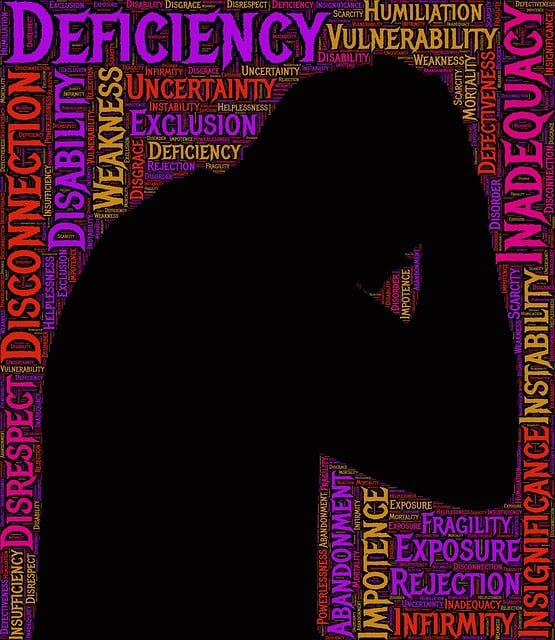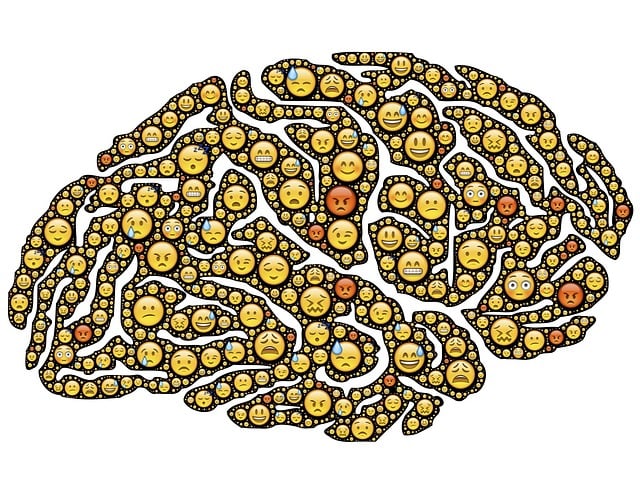Depression, a complex mental health condition, can be tackled with early detection and holistic approaches. Denver Mindfulness Therapy combines cognitive-behavioral therapy (CBT), mindfulness meditation, and stress management to cultivate present-moment awareness and self-compassion. They offer tailored sessions, community outreach, and education programs to reduce stigma and promote mental well-being. Lifestyle changes like exercise, balanced nutrition, and sleep are crucial, while public awareness campaigns encourage open conversations about depression. Denver Mindfulness Therapy builds resilience through mindfulness practices, empowering individuals with tools for emotional regulation and stress navigation. A combination of professional guidance, community support, and personal proactive measures can effectively manage depression.
Depression is a prevalent yet manageable condition. This article explores comprehensive prevention strategies, offering insights into recognizing signs early on, adopting a holistic approach with Denver Mindfulness Therapy, making lifestyle adjustments for mental well-being, building resilience through coping mechanisms, and seeking professional support when needed. By implementing these strategies, individuals can empower themselves to prevent and manage depression effectively.
- Understanding Depression: Recognizing Signs and Symptoms
- Denver Mindfulness Therapy: A Holistic Approach to Prevention
- Lifestyle Adjustments for a Healthier Mindset
- Building Resilience: Coping Strategies for Daily Life
- Seeking Support: Professional Help and Community Resources
Understanding Depression: Recognizing Signs and Symptoms

Depression is a complex and pervasive mental health condition that can significantly impact an individual’s daily life and overall well-being. Recognizing the signs and symptoms early on is crucial for effective prevention and treatment. The first step in understanding depression involves being aware of its various manifestations. Common indicators include persistent feelings of sadness, loss of interest or pleasure in activities once enjoyed, changes in appetite and sleep patterns, fatigue, difficulty concentrating, and thoughts of worthlessness or suicide. These signs may vary from person to person, making it essential for individuals and mental health professionals alike to stay informed about the diverse ways depression can present itself.
In Denver Mindfulness Therapy, a holistic approach is often employed to address these symptoms. This includes integrating Coping Skills Development techniques, such as cognitive-behavioral therapy (CBT), mindfulness meditation, and stress management strategies. Moreover, Risk Management Planning for Mental Health Professionals plays a pivotal role in early intervention, enabling practitioners to identify at-risk individuals and provide appropriate support. Additionally, Mental Health Education Programs Design focused on raising awareness about depression can empower communities to foster understanding and reduce stigma, creating an environment conducive to early detection and effective prevention strategies.
Denver Mindfulness Therapy: A Holistic Approach to Prevention

Denver Mindfulness Therapy offers a holistic approach to depression prevention, focusing on cultivating present-moment awareness and self-compassion. This therapeutic method teaches individuals how to effectively manage stress, regulate emotions, and cultivate resilience through mindfulness practices such as meditation, breathing exercises, and yoga. By integrating these techniques into daily routines, individuals can develop a deeper sense of inner peace and well-being, thereby reducing the risk of depressive episodes.
In addition to individual therapy sessions, Denver Mindfulness Therapy also emphasizes community engagement. Their Community Outreach Program Implementation includes group workshops, support groups, and educational initiatives aimed at fostering mental health awareness and accessible trauma support services. Encouraging a sense of belonging and connection, these collaborative efforts promote self-care routine development for better mental health, empowering individuals to take proactive steps toward maintaining their emotional balance.
Lifestyle Adjustments for a Healthier Mindset

Adopting a healthier lifestyle is a powerful tool in the fight against depression. Simple adjustments can make a significant impact on one’s mental well-being. Engaging in regular physical activity, for instance, releases endorphins, often referred to as ‘feel-good’ hormones, which can improve mood and reduce symptoms of depression. A balanced diet rich in nutrients is equally essential; ensuring the body receives what it needs can positively influence brain chemistry. Additionally, prioritizing quality sleep is crucial; adequate rest allows the mind and body to rejuvenate, promoting better emotional regulation.
Denver Mindfulness Therapy emphasizes the role of mindfulness practices, such as Mindfulness Meditation, in cultivating a healthier mindset. Regular meditation has been shown to reduce stress, increase self-awareness, and enhance coping skills development. Public Awareness Campaigns can also play a vital part by educating individuals on recognizing depression’s signs and promoting early intervention. By combining lifestyle changes with evidence-based therapeutic techniques, one can effectively navigate the path towards better mental health.
Building Resilience: Coping Strategies for Daily Life

Building resilience is a crucial aspect of depression prevention, focusing on coping strategies to navigate daily life with greater ease. Denver Mindfulness Therapy emphasizes techniques that foster adaptability and emotional stability. Through mindfulness practices, individuals learn to stay present, accepting their feelings without judgment, which can help reduce the intensity of negative emotions. This proactive approach enables folks to respond rather than react to stressful situations, fostering a sense of control and empowerment.
Integrating self-care routines and stress management techniques is essential for resilience building. Encouraging activities like regular exercise, sufficient sleep, and engaging hobbies not only promote physical health but also contribute to improved mental well-being. Furthermore, cultivating self-esteem improvement through positive affirmations and setting achievable goals can significantly enhance one’s ability to cope with life’s challenges. These strategies collectively equip individuals with the tools needed to navigate difficult times more effectively.
Seeking Support: Professional Help and Community Resources

Depression is a complex condition that often requires professional intervention for effective prevention and management. Seeking support from qualified healthcare professionals, such as Denver Mindfulness Therapy experts, can provide individuals with tailored guidance and strategies to combat depressive episodes. These specialists offer evidence-based treatments like cognitive-behavioral therapy (CBT) and mindfulness practices, empowering people to develop emotional resilience and coping mechanisms.
Community resources play a vital role in fostering mental wellness alongside professional help. Encouraging individuals to engage in support groups or community initiatives centered around mental health can create a sense of belonging and understanding. Public awareness campaigns focused on breaking the stigma surrounding depression can further facilitate open conversations, encouraging those struggling to seek appropriate guidance, whether through journaling exercises to track emotional states or leveraging emotional intelligence to navigate challenging situations with enhanced self-awareness.
Depression prevention is a multifaceted approach that combines understanding, holistic practices, lifestyle adjustments, resilience-building, and access to support. By recognizing signs early and adopting strategies like Denver Mindfulness Therapy, individuals can foster a healthier mindset and navigate life’s challenges more effectively. Integrating mindfulness into daily routines, alongside supportive community resources, plays a pivotal role in preventing and managing depression.














